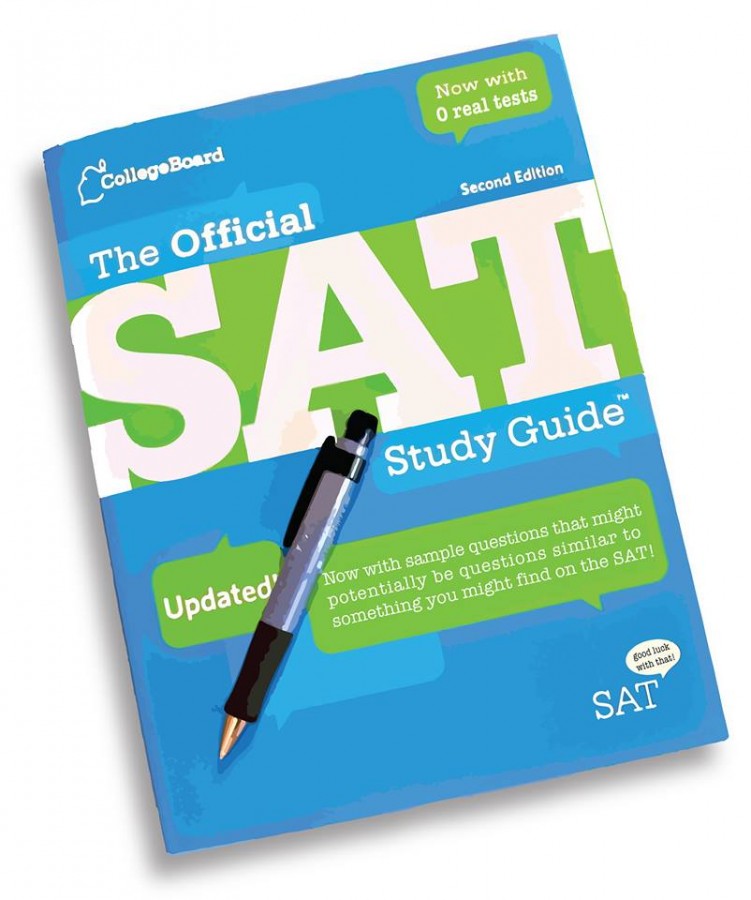Sophomores struggle to prepare for new SAT
Easier vocab? Easier math? An optional instead of required essay? At first glance, these new changes in the notorious Scholastic Aptitude Test, a.k.a. the SAT, may seem beneficial to new participants. And being the first to take the new test, the Class of 2017 should, theoretically, be overjoyed with their luck.
Yes, and theoretically, Marx’s version of communism works.
People should stop living in the theoretical world and start facing the facts: these new, supposedly “advantageous” changes disadvantage pretty much everyone who decides to take it in March 2016.
Problem #1: Imagine studying for two weeks for an ecology exam. Then, three days before the big test, the teacher suddenly decides to change the material covered in the test. That’s pretty much how most of the current sophomores feel right now with the new SATs. Anyone who had already started studying for the old SATs may have completely wasted their time.
Problem #2: Sophomore year is the optimal time to decide whether to take the SATs, ACTs, or both. Yet, how can sophomores make this decision if they don’t know what the new SATs will be like until they are juniors? In effect, the sophomores are the guinea-pigs who will not have access to sufficient practice materials as did classes before them. The unknown when applying for colleges should be whether you get accepted to your dream school, not the format of the test you need to take to apply.
Problem #3: The sophomores really won the lottery: they get to take the new SAT and PSATs all in the same year they take the new Smarter Balance test! Perhaps they should call the sophomore class “the class of no expectations” considering they have no idea what to expect on every standardized test they are likely to take.
College Board has recently categorized the changes into the following: “command of evidence”, “relevant words in context”, an optional “essay analyzing a source”, “math that matters most”, “problems grounded in real-world context”, “analysis in science and history/social studies”, and “founding documents and global conversation.”
Math that matters most. That’s quite a mouthful. Do you think in the essay-analyzing-a-source section, they will ask what rhetorical device the category ‘math matters most’ employs? I know– alliteration. But getting to the substance of that category, I guess the only math they are going to be testing us on is how to calculate taxes, if that’s what “matters most.”
But really, I think the question we should all be asking is “how in the world do you test one’s knowledge of global conversation?”
Is the College Board really trying to altruistically help the Sophomore Class, or are these changes a reaction to the ACT becoming more popular than the SAT? The reasons given for changing the SATs are as tricky to understand as some of the old SAT questions themselves.
Jonathan Demeter ’17 sums it up: “The grade is definitely not excited.”

An avid violin player and lover of TV show The Office, Jackie Sussman ’17 has a life filled with happiness doing the things she loves while surrounded...


















































